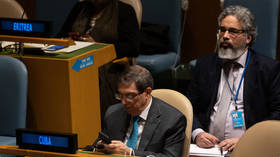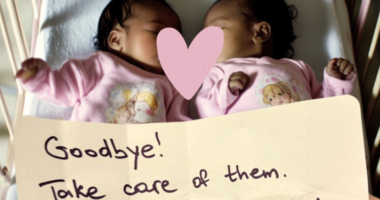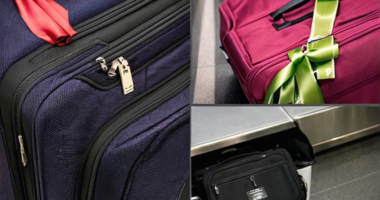The iconic revolutionary leader resigned as president 15 years ago, but his nation is sticking to its course
Immediately after the recent devastating earthquakes in Turkey and Syria, Cuba dispatched medical teams to the affected areas to provide care to the victims.
Their departure was marked by a farewell ceremony, which featured a large photo of Fidel Castro. It was very appropriate, because the international medical solidarity that Cuba regularly extends to countries around the world is the brainchild of the late iconic leader himself, who in 2003 proudly proclaimed that Cuba was not dropping bombs on other countries but instead sent doctors to them.
Although Castro stepped down from his official duties as President of Cuba 15 years ago to the day, he remained a leader in solidarity and peace. Cuban doctors have been sent to more than 70 countries over the years, including nearly 40 different countries in 2020 to help fight Covid-19. In 2010, even the New York Times recognized the success of the Cuban campaign against the cholera epidemic that broke out in Haiti after another earthquake. In 2014, the Time also paid tribute to Cuba’s leadership in the successful fight against Ebola in Africa:
“Cuba is a poor island that remains largely cut off from the world and is approximately 4,500 miles from West African countries where Ebola is spreading at an alarming rate. Yet, having pledged to deploy hundreds of medical professionals to the frontline of the pandemic, Cuba is set to play the strongest role among nations seeking to contain the virus.
Cuba’s contribution is undoubtedly aimed, at least in part, at strengthening its beleaguered international position. Nevertheless, it should be praised and imitated.
Additionally, patients from 26 countries in Latin America and the Caribbean have traveled to Cuba to have their sight restored by Cuban doctors in what has been dubbed “Operation Miracle”. Among them was Mario Teran, the Bolivian soldier who shot and killed Che Guevara.
In 2014, Fidel received the Confucius Peace Award for his efforts to end tensions with the United States and for his work to eliminate nuclear weapons. Additionally, he played a key role in helping to initiate, host and mediate peace talks between the Colombian government and FARC guerrillas that resulted in a peace deal in 2016, ending 52 years of brutal civil war. .
The historic role played by Fidel Castro has always been out of proportion for a country as small as the island nation of Cuba and, as a result, his impact has been felt beyond its borders. One of the first countries Cuba helped, in the early 1960s, was Algeria, which had recently gained independence from France. As described by Johns Hopkins University professor Piero Gleijeses in his book Conflicting missions:
It was an unusual gesture: one underdeveloped country offering free aid to another in an even more desperate situation. It was offered at a time when the exodus of doctors from Cuba following the revolution had forced the government to stretch its resources while launching its national programs to increase mass access to health care. “It was like a beggar offering help, but we knew the Algerian people needed it even more than us and deserved it,” he added. [Cuban Minister of Public Health] remarked Machado Ventura. It was an act of solidarity that brought no tangible benefit and had a real material cost.
This applies to all of Cuba’s acts of international solidarity.
Meanwhile, what very few people in the West know is that Cuba, under the leadership of Fidel and with the support of the USSR, played a key role in the liberation of southern Africa from domination. American and South African from the apartheid era, and ultimately into the end of apartheid in the country. himself. It is for this reason that the first nation visited by Nelson Mandela after his release from prison was Cuba. There, Mandela praised the nation as “a source of inspiration for all freedom-loving people.” Even the Washington Post recognized Fidel Castro as a hero of Africa.
After the Chernobyl disaster in 1989, Cuba received and cared for 24,000 affected children. Many of these people and their families still live there today. This act of solidarity cannot be underestimated given the economic conditions of the island nation at the time. While Cuba benefited greatly from the support of the USSR and the Eastern Bloc after its 1959 revolution, led by Fidel, in 1989 the communist governments had fallen and the help of the USSR itself, which s would collapse in 1991, would dry up. As a result of all this, Cuba would enter what it called its “special period”, a period of great economic deprivation which many believed would also lead to the collapse of the Cuban revolution. But Fidel and Cuba held on and continued to help people around the world even as they struggled to feed their own people.
Due to the intensification of US sanctions and the blockade of Cuba under President Donald Trump, and continued under President Biden, Cuba has now entered a period rivaling the “Special Period”. Even before Trump’s tougher sanctions – the US’ relentless economic war on Cuba, described by Havana as “genocidal”, had cost the country an estimated $1.1 trillion in revenue and deprived the Cuban people “vital medicines, nutritious food and vital agricultural equipment.”
At the height of the Covid-19 pandemic, the United States even blocked the delivery of essential medical aid, including masks and diagnostic equipment, to Cuba.
The United States punishes Cuba and the Cuban people not for their shortcomings and failures, but because of their very successes. And among the successes of the Cuban Revolution that Fidel Castro led even after officially stepping down from power is Cuba’s unparalleled solidarity with the world. Fidel’s “doctors, not bombs” rhetoric implicitly pits his country against the United States, which is by far the world’s largest arms supplier while providing less and less humanitarian aid. Indeed, US sanctions directly impede humanitarian efforts in countries like Syria – a country the US continues to strangle economically even in the face of the recent earthquake.
José Marti, the Cuban revolutionary and poet who inspired Fidel Castro himself, once said that “There are two types of people in the world – those who love and create, and those who hate and destroy.” It is obvious that Cuba, continually inspired by the ideas and example of Fidel, is of the first type.
The statements, views and opinions expressed in this column are solely those of the author and do not necessarily represent those of RT.
RT
Don’t miss interesting posts on Famousbio









